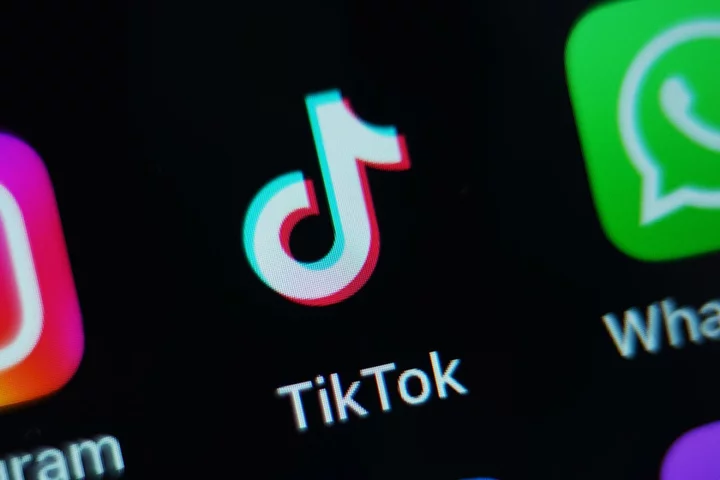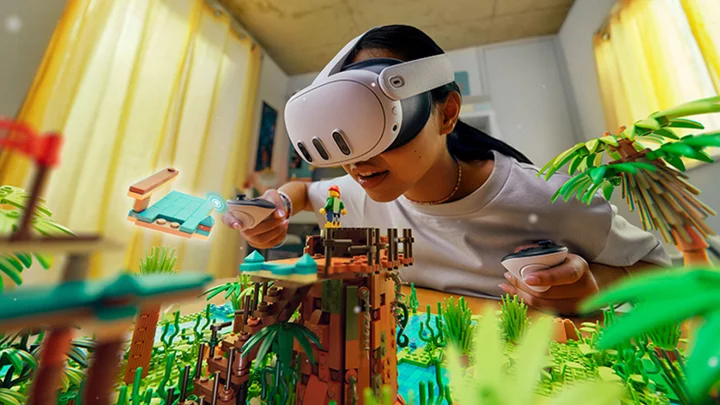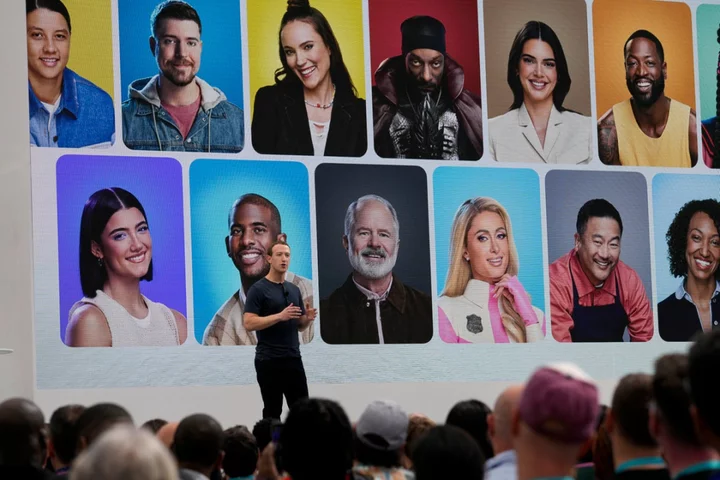
TikTok finds and shuts down secret operation to stir up conflict in Ireland
TikTok has uncovered and shut down a secretive operation to influence Irish users and whip up social conflict. The covert influence operation (CIO) network comprised 72 accounts with a total following of almost 95,000 users. The video sharing platform’s work to find and remove the accounts was detailed in a report to the European Commission. TikTok is a signatory of an EU code of practice aimed at combatting disinformation and misinformation online. Ireland from March to June 2023" data-source=""> The latest report covered the timespan from January to June this year. “The network targeted Irish audiences,” TikTok said of the CIO in Ireland. “The individuals behind this network created inauthentic accounts; hyper-posted content with divisive views related to nationalism in Ireland, Japan, Russia, and Taiwan; and hyper-posted comments with similar low-quality content in an attempt to redirect TikTok users off-platform and to intensify social conflict.” TikTok moved against similar covert influence operations in Russia, Poland and Germany. The report also revealed that from March to June 2023, TikTok removed 67,013 fake accounts in Ireland. Those accounts were followed by 296,274 users. In the first half of the year, TikTok removed 218,158 fake followers on accounts in Ireland and prevented 26,034,349 fake follow attempts. There were also 144 accounts banned under TikTok’s impersonation policies. A total of 2,165 videos were removed in Ireland because of violation of harmful misinformation policy. Read More Charity boss speaks out over ‘traumatic’ encounter with royal aide Ukraine war’s heaviest fight rages in east - follow live Spotify will not ban all AI-powered music, says boss of streaming giant Vehicle scam reports surged by 74% in the first half of 2023, says Lloyds Bank Standard Life confirms plans for pensions dashboard
2023-09-28 20:15

5 takeaways from America's landmark lawsuit against Amazon
An antitrust lawsuit from 17 states and the Federal Trade Commission this week against Amazon represents the US government's biggest regulatory challenge yet against the e-commerce juggernaut.
2023-09-28 19:51

ECB looks to AI to better understand inflation after big misses
FRANKFURT The European Central Bank is looking at how artificial intelligence could help improve its understanding of inflation
2023-09-28 18:58

ChatGPT now has direct access to the internet
OpenAI has announced that its viral artificial intelligence chatbot ChatGPT now has direct access to the internet. The update comes just days after ChatGPT was given the ability to “see, hear and speak” through new voice and image recognition tools, building on its generative AI tools to bring capabilities similar to virtual assistants like Amazon’s Alexa and Apple’s Siri. Prior to the latest update, ChatGPT’s knowledge base was limited to a data training set that ended in September 2021. “ChatGPT can now browse the internet to provide you with current and authoritative information, complete with direct links to sources,” OpenAI announced on Wednesday. “It is no longer limited to data before September 2021. Browsing is particularly useful for tasks that require up-to-date information, such as helping you with technical research, trying to choose a bike, or planning a vacation.” The web-connected version of ChatGPT is currently only available for paying ChatGPT Plus and ChatGPT Enterprise customers, but OpenAI said it has plans to expand it to non-paying users “soon”. OpenAI briefly added internet connectivity features for premium ChatGPT users in July, however it was shut off after people exploited it to get around paywalls. This issue appears to have been fixed, along with other ways to misuse the AI bot, through OpenAI’s evolving AI safety measures. The update was announced on the same day that Meta unveiled its own series of AI chatbots, which come with different personalities based on real people. Meta boss Mark Zuckerberg said at the company’s annual Meta Connect conference that the chatbots would be available through its applications Instagram, Messenger and WhatsApp. “This isn’t just going to be about answering queries,” he said. “This is about entertainment.” Other social media and messaging apps have also introduced AI chatbots to their platforms, including Snapchat’s My AI tool. Read More ChatGPT boss says he’s created human-level AI, then says he’s ‘just memeing’ ChatGPT boss says he’s achieved human-level AI, then says he’s ‘just memeing’ ChatGPT now has power to ‘see, hear, and speak’ Meta plans to develop ‘sassy robot’ chatbot for young users, report says
2023-09-28 18:58

Time-lapse that took 20 years to make shows legendary stellar explosion
Scientists have spent 20 years putting together time-lapse footage offering a stunning window into the past. Two decades of data taken from NASA’s Chandra X-ray Observatory were used by astronomers to create a video of a stellar eruption that actually occurred 180 years ago. Observations from Chandra, taken in 1999, 2003, 2009, 2014 and 2020 were all used, in combination with data from ESA’s XMM-Newton spacecraft. With the combined data, experts were able to capture the stellar explosion, known as Eta Carinae. Eta Carinae is a famous star system containing two large stars, one of which is around 90 times larger than the Sun, while the other is around 30 times as large. The “Great Eruption” from Eta Carinae is believed to be the result of the merging of two stars that were originally part of a three-star system. Eta Carinae Time-Lapse, Chandra X-ray Observatory www.youtube.com It first took place in the mid-19th century and the aftermath is still continuing to be observed today. New footage shows how the explosion has expanded into space with staggering speeds of up to 4.5 million miles per hour. In a statement, NASA officials explained: “During this event, Eta Carinae ejected between 10 and 45 times the mass of the sun. This material became a dense pair of spherical clouds of gas, now called the Homunculus Nebula, on opposite sides of the two stars.” The Homunculus Nebula is the blue cloud visible in the video, while the growing bright orange ring shows how X-ray emissions have grown and expanded over time. “The new movie of Chandra, plus a deep, summed image generated by adding the data together, reveal important hints about Eta Carinae’s volatile history,” the statement read. “This includes the rapid expansion of the ring, and a previously-unknown faint shell of X-rays outside it.” Sign up to our free Indy100 weekly newsletter Have your say in our news democracy. Click the upvote icon at the top of the page to help raise this article through the indy100 rankings.
2023-09-28 18:52

Video showing how babies' faces form is giving people nightmares
The human body is an extraordinary thing – and now, one video is proving just that, while simultaneously giving people nightmares. Childbirth is often regarded as one of nature's most incredible events, but have you ever questioned how a baby's face develops while in the womb? Neither have we. But thanks to the BBC, people are divided about how "beautiful" the process actually is. The simulation shows how the baby's face starts with the philtrum, the area between the bottom of your nose and upper lip. During the episode of Inside the Human Body: Creation, Michael Mosley points out: "Down the centuries, biologists have wondered why every face has this particular feature. What we now know is it is the place where the puzzle that is the human face finally all comes together." The footage then recreates a baby's facial development via an animation, which begins with two holes at the top of the head. It appears as though the features then start to merge, though this is the baby's nostrils. (Fast-forward 32 seconds in to the below video to watch:) Face Development in the Womb - Inside the Human Body: Creation - BBC One www.youtube.com "We've taken data from scans of a developing embryo so we're able to show you for the very first time how our faces don't just grow, but fit together like a puzzle," Mosley continues. "The three main sections of the puzzle meet in the middle of your top lip, creating the groove that is your philtrum." He continues: "This whole amazing process, the bits coming together to produce a recognisable human face, happens in the womb between two and three months. "If it doesn't happen then, it never will." The snippet understandably garnered a mixed response, with one viewer writing: "That was so creepy yet amazing..." Another joked: "Makes me feel better that Brad Pitt and Tom Cruise once looked like space aliens." And a third quipped: "Thank you for the enlightening information and the skin-curdling nightmares." Sign up for our free Indy100 weekly newsletter Have your say in our news democracy. Click the upvote icon at the top of the page to help raise this article through the indy100 rankings.
2023-09-28 18:21

Volkswagen restarts production after suffering major IT outage
By Christoph Steitz FRANKFURT (Reuters) -Volkswagen said on Thursday that a major IT outage, which had caused most of its
2023-09-28 17:16

Meta unveils new Quest 3 headset and smart glasses that allow for virtual experiences in the real world
Meta has released two new ways to begin to experience the “mixed reality” that it says is the future. It has revealed its Meta Quest 3, a virtual reality headset that also has “passthrough” to the real world, allowing virtual objects to be layered on top of it. Until now, its headsets have only offered virtual reality. It also released new versions of its smart glasses, made in collaboration with Ray-Ban. They feature a camera that can record, and speakers in the glasses’ arms. Both are a glimpse at what Mark Zuckerberg has suggested will be the future: smart eyewear that let you move between virtual and real worlds, to experience the “metaverse” around which the company is now organised and for which it changed its name from Facebook. But that technology is not yet available, and so the new products are Meta’s best attempt at giving something of a look at that future. Meta’s new releases come soon before Apple’s “Reality Pro”, the mixed reality headset that it revealed in June and says will be coming early next year. Like the new Meta Quest 3, that uses cameras to show the real world and project digital items on top of it, or lets users dial into entirely virtual worlds. Meta has suggested it will be able to stand out from Apple’s competition by offering a more social version of mixed reality. But it has also pointed to its price: the Meta Quest 3 costs $500, or £480, compared with $3,500 for the Vision Pro. The Meta Quest 3 does have considerably lower specs than its competitor, however. While Meta said that its new headset has a 30 per cent increase from its predecessor, even as the headset itself gets smaller, the detail is much less than in Apple’s headset. Meta’s Quest is also focused primarily on gaming and entertainment. It revealed it along with a host of games – including access to Xbox Cloud Gaming, which allows many console games to be played over the internet. The new headset begins by automatically mapping the space around its user, with sensors that are able to understand both the size of the room and any objects that are in it. That can then be used to ensure that wearers don’t crash into their surroundings, but also layer games on top. Pre-orders for the Meta Quest 3 open now, and it will go on sale on 10 October. The new smart glasses cost £299 or $299, the same price as the original version. They bring improved cameras, a lighter design, and new features such as livestreaming. Read More Meta showcases new AR/VR tech at annual Connect conference Meta plans to develop ‘sassy robot’ chatbot for young users, report says Facebook changes logo to ‘make F stand apart’ – but can you tell the difference?
2023-09-28 16:58

People are just learning Google's original name – and thanking god that it was changed
A world without Google would almost be akin to a world without water or air. Indeed, the internet behemoth’s power is so great that it’s even become its own verb. And sure, there are other search engines, but when have you ever heard someone say: “Let me just Bing that”? Yet, it turns out the iconic tech company could have had a very different fate had it stuck to its original name. That’s right, Google hasn’t always been Google. And at its inception back in 1996, it had a somewhat more risqué title. It was called… BackRub. Yep, BackRub. According to Standford University computer scientist David Koller, who wrote about the brand’s genesis back in 2004, founders Larry Page and Sergey Brin came up with the search engine's first name as a nod to its analysis of the web’s “back links”. However, a year after BackRub was born, Page and his officemates – including fellow graduate students Sean Anderson, Tamara Munzner, and Lucas Pereira – discussed a number of possible alternatives to the massage-evoking moniker. According to Koller, the final, fateful brainstorming session occurred one day in September of that year. “Sean and Larry were in their office, using the whiteboard, trying to think up a good name - something that related to the indexing of an immense amount of data,” he recalled. “Sean verbally suggested the word ‘googolplex,’, and Larry responded verbally with the shortened form, ‘googol’ (both words refer to specific large numbers). “ Anderson then searched the Internet domain name registry database to see if the newly suggested name was still available to use. But, since “Sean is not an infallible speller”, “he made the mistake of searching for the name spelt as ‘google.com,’ which he found to be available,” Koller continued. “Larry liked the name, and within hours he took the step of registering the name ‘google.com’ for himself and Sergey.” And the rest, as they say, is history. Sill, 25 years on from that simple domain name registration that would go on to change the world, people have shared their bewilderment that “BackRub” could have become a household name. “I could die without knowing that this was Google's old name,” one X/Twitter user commented. “What were they smoking back in 90s??” asked another. Meanwhile, a third responded with what we’re all now thinking: “Tbh I need a backrub.” At least the tech titans can now give themselves a pat on the back for a job well done with “Google”. Sign up for our free Indy100 weekly newsletter Have your say in our news democracy. Click the upvote icon at the top of the page to help raise this article through the indy100 rankings.
2023-09-28 16:49

Meta launches AI chatbots with ‘personalities’ to take on ChatGPT
Meta has unveiled a new series of artificial intelligence chatbots to challenge the likes of OpenAI’s ChatGPT and Google’s Bard. Speaking at the tech giant’s annual Meta Connect conference, chief executive Mark Zuckerberg said the AI chatbots would feature different “personalities” based on celebrities. Among those to have already lended their personalities are the rapper Snoop Dogg, NFL star Tom Brady and YouTuber Mr Beast. The Meta AI virtual assistants, which will only be available in the US initially, will be able to answer queries or craft responses in a fashion similar to ChatGPT and other programmes. The firm also announced plans to launch an AI studio where users could custom build their own AIs. Users will be able to access the assistant and any created within its new AI studio from within any of Meta’s messaging platforms. This is where Meta is looking to differentiate itself from its rivals, by using its already extensively used social platforms to put AI chatbots in front of users, many for the first time. The company said it did not believe there will be “one single super-intelligent AI that everyone uses”, but rather “different AIs for different things”. This was the reason for creating AI Studio, Meta said, to enable users to “create your own AI that’s aligned with your goals, whether you’re a small business, a creator, or anyone really”. The company demonstrated several AIs it had created already, including a sous chef who could offer meal suggestions and a “personal editor and writing partner” called Lily. Meta said these different chatbots would be given their own profiles on its platforms to enable users to interact with them. Elsewhere at the conference, Mr Zuckerberg unveiled the newest version of the company’s virtual reality headset – the Meta Quest 3 – and reiterated his belief that the future of the internet would be based in the virtual world of the metaverse. In this space, users in such headsets will be able to interact with avatars of others as well as AI bots. Mr Zuckerberg said the metaverse would see the “physical and digital world come together”. The Facebook founder also unveiled a new pair of Meta smartglasses made by Ray Ban, which will be powered by the new Meta AI. “Smart glasses are the ideal form factor for you to let an AI assistant see what you are seeing and hear what you are hearing,” Mr Zuckerberg said. Over the last week, both Microsoft and Amazon have used live events to demonstrate their latest innovations in AI, with Microsoft announcing a new tool called Copilot is coming to Windows which users can call up at any time to help them with any computing, work or social task. While Amazon used its product event last week to unveil improvements to voice-based AI assistant Alexa that make it more natural and conversational, and better at understanding context and inference to help users complete tasks. On the same day as Meta’s announcement, OpenAI also unveiled a major update to ChatGPT that will give the viral chatbot direct access to the internet for the first time. Additional reporting from agencies Read More Meta unveils new Quest 3 headset and smart glasses that allow for virtual experiences in the real world Meta just took a step towards its dream of the metaverse Meta showcases new AR/VR tech at annual Connect conference Meta plans to develop ‘sassy robot’ chatbot for young users, report says
2023-09-28 16:45

Sushi could secretly be spreading antibiotic resistance
Antibiotic-resistant bacteria are an increasing area of concern for health experts and scientists are concerned that the popular food sushi could be spreading it. Researchers at the Norwegian University of Science and Technology were interested in looking at the health implications of sushi, which is considered pretty standard fare in the country. Dr. Hyejeong Lee, who recently completed her PhD at the Department of Biotechnology and Food Science at NTNU, investigated different varieties of Aeromonas bacteria in seafood products that aren’t processed in a way that reduces bacteria, such as sashimi (raw fish) and cold-smoked fish. Lee explained: “The goal was to gain more knowledge about Aeromonas in this type of seafood – both the bacteria’s role in the deterioration of the product and in causing disease. Furthermore, we wanted to see if raw seafood can spread antibiotic-resistant bacteria.” While Listeria monocytogenes is the most well-known bacteria that can cause illness from unprocessed seafood, the prevalence of Aeromonas in similar products is an increasing worry for scientists for another reason. This is because Aeromonas bacteria frequently exchange genetic material with other bacteria in the sea, which means they can inherit and spread resistance to antibiotics before ending up in sushi. Lee explained: “Some strains of Aeromonas can also spread antibiotic resistance from one type of bacteria to another. Eating seafood infected by resistant bacteria is a likely way these bacteria can spread from marine animals and environments to humans.” Resistant bacteria are foreseen to be a big problem in the future, with the worst-case scenario being that few or no antibiotics will work at treating them. Experts believe it is important that antibiotic resistance is seen as a broad approach that is seriously considered in all aspects of society. Anita Nordeng Jakobsen, associate professor at NTNU’s Department of Biotechnology and Food Science, explained: “To combat the spread of antibiotic-resistant bacteria, it is important that we adopt a broad approach that looks at animal and human health, food production and the environment together in order to achieve better public health.” Still, Lee was quick to emphasise that the risk of getting sick from Aeromonas is very small, especially for healthy people. But, she stressed: “Aeromonas is often ignored when we talk about food safety. I think my research highlights that the food industry needs to pay more attention to these bacteria." Sign up to our free Indy100 weekly newsletter Have your say in our news democracy. Click the upvote icon at the top of the page to help raise this article through the indy100 rankings.
2023-09-28 16:22

In major blow to TikTok, Indonesia bans e-commerce transactions on social media
Indonesia has banned e-commerce transactions on social media platforms, the trade minister said on Wednesday, in a blow to short video app TikTok, which is doubling down on Southeast Asia's biggest economy to boost its e-commerce business.
2023-09-28 10:23
